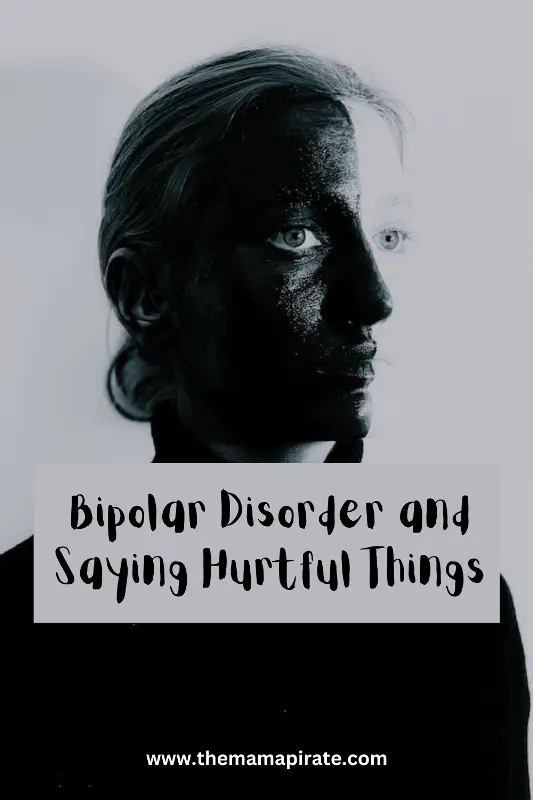Extreme mood swings typify the long-term mental health illness known as bipolar disorder. These include depressive episodes characterized by extreme sadness, hopelessness, manic episodes, high energy, and euphoria. These mood swings may significantly impact the person’s day-to-day existence. It’s critical to understand that bipolar disorder is not a sign of weakness or a medical condition but a character flaw in an individual.
A person with bipolar disorder finds it extremely difficult to communicate. During manic episodes, they might talk quickly, constantly change the subject, and find it hard to concentrate on one thing at a time. They could also rashly say something hurtful or inappropriate.
The spontaneous and frequently sarcastic verbal attacks are difficult to control and can impact interpersonal relationships with other people. Read on to find out more about bipolar disorder.
Understanding Bipolar Disorder
Bipolar disorder is a mental illness causing a person to experience unusual changes in their mood, energy, activity level, and concentration. Earlier, people knew this by the name of manic depression. The daily tasks can become challenging to complete during these shifts.
Two varieties of bipolar disorder exist. There are noticeable variations in mood, energy, and activity levels in both types. These moods range from very “down,” depressed, apathetic, or hopeless times to extremely “up,” ecstatic, agitated, or energetic times (known as manic episodes).
- Bipolar I Disorder
An individual with manic episodes is diagnosed with bipolar I disorder. They may have an extremely high level of energy and feel irritable during a manic episode. In addition to having periods of neutral mood, most patients with bipolar I illness also suffer episodes of hypomania or depression.
Symptoms
- Manic Episode
A manic episode lasts at least one week, during which a person exhibits at least three of the following behavioral changes, has more energy than normal, and is very buoyant or irritated for the majority of the day on most days:
• Reduced need for sleep, like feeling alert after getting far less sleep than normal
• Enhanced or accelerated speech
• Uncontrollably rushing thoughts or speech while abruptly switching topics or ideas
• Distraction
• An increase in activity (such as restlessness or multitasking)
• An increase in unsafe conduct, such as careless driving and shopping binges
The severity of the symptoms interferes with family, social, or professional obligations. A person experiencing manic symptoms frequently needs to be admitted to the hospital to remain safe. Psychotic traits include delusions, disorganized thought patterns, and/or hallucinations that some people experience during manic episodes.
b. A Hypomanic Episode
The primary symptom of hypomanic episodes is less intense manic symptoms that persist for four days straight as opposed to a week. Hypomanic patients do not experience the significant issues with day-to-day functioning that manic episodes frequently bring about.
c. Severe Manic Episode
A person experiences a major depressive episode when they experience at least five of the following symptoms (including a minimum one of the first two symptoms) for a minimum of two weeks:
• High melancholy or hopelessness
• Losing interest in almost everything
• Feelings of guilt or unworthiness
• Weary
• Changes in sleep patterns
• Elevated or decreased hunger
• Agitation (such as pacing) or slurred speech or gait
• Inability to concentrate
• Regular suicidal or fatal thoughts
2. Bipolar Disorder II
One must experience at least one major depressive and hypomanic episode to be diagnosed with bipolar II disorder. In the interim between episodes, people resume their regular activities. Since hypomanic periods can feel enjoyable and even improve work or school performance, people with bipolar II illness frequently seek therapy after experiencing their first depressive episode.
Individuals who suffer from bipolar II disorder sometimes also struggle with other mental health conditions, such as substance use disorder or anxiety disorder, which can worsen symptoms of hypomania or sadness.
Communication Challenges in Bipolar Disorder
During manic episodes, someone with bipolar disorder might feel pressured to speak. These are times of tremendous apex. A person could feel compelled to speak quickly, abruptly, or erratically during these moments.
Bipolar disorder patients frequently go between manic and depressed episodes. Individual differences exist in the speed at which moods change. Mania-induced pressured speech is a bipolar illness symptom.
In each of these scenarios, a person could encounter:
• Speaking quickly and without regard for others
• Loud conversation
• Discussing topics in an unstructured way
• Discussing unsuitable topics
• Unable to communicate quickly enough to keep up with ideas.
On its own, forced speaking doesn’t provide any serious difficulties. However, a person’s general health and well-being may be impacted by the underlying reason for the strained speech. During depressive episodes, someone with bipolar disorder is prone to go through times of poor self-esteem. Furthermore, bipolar disorder patients are more likely to attempt suicide.
A case study
Studies reveal that at least some bipolar disorder sufferers have trouble identifying the emotional expressions on other people’s faces and voices. A survey was conducted to investigate if individuals with bipolar disorder might also have impairment in the interaction between the systems that control these various emotion perception skills, in addition to impairment in these seemingly distinct processes. Emotional signal integration in individuals with the illness was examined to evaluate the theory.
People with and without bipolar disorder were asked to rapidly recognize a series of facial expressions while simultaneously ignoring a series of statements presented in an emotional tone.
In certain cases, such as when a cheerful voice and face were combined, the audio and visual information matched, while in other cases it didn’t. The survey anticipated that faster answers would best reflect sensory integration when the visual and aural information were the same, as competing information is likely to disrupt one’s ability to detect a stimulus.
What was discovered?
According to the poll, those without bipolar disorder exhibited this impact, but those with it were less successful at integrating emotional cues. The bipolar group’s answers were insensitive to whether or not the audio and visual information was identical. Indeed, their recognition of facial emotional expressions was consistently and considerably slower than that of the control group.
When information of the same meaning is provided to different senses, information processing usually increases, but this wasn’t the case for the bipolar group. It shows that important information from many sensory channels isn’t integrated in the normal way for persons with bipolar disorder.
Psychological Factors Behind Hurtful Statements
People who have bipolar disorder may occasionally say unpleasant things because of the disorder’s nature and how it affects their emotions, ideas, and behaviors. During manic episodes, they might speak less filtered and with an increased sense of confidence. As a result, they could become irrationally harsh and say things that they may not have meant or thought through completely. Their lack of restraint and poor communication judgment can also be attributed to their rapid thinking and heightened energy.
Conversely, during depressive episodes, individuals with bipolar disorder may feel intensely negative feelings, sadness, and hopelessness. Anger, irritation, and overall discontent might result from these feelings. They may mistakenly lash out or say unpleasant things in an attempt to cope with their emotional distress or to communicate their internal issues.
Bipolar individuals claim that having a propensity to lash out with harsh, irrational language might be a sign of agitated sadness or a mixed-feature episode. The following are a few bipolar warning indicators that such a mood may be approaching:
• Anxiety.
• Fury directed towards someone they believe has harmed them.
• Anger manifested physically, as in striking and kicking.
• Expressing rage against a company or government organization that they feel is flawed.
• Using more explicit language
• Attributing your feelings to other people.
• Having strong beliefs and even acting aggressively when expressing them.
• Incessantly seeking methods to validate and confirm their beliefs.
Impact on Relationships
Continuing a relationship with an individual who has bipolar disorder can have an impact on a person’s profession, family, kids, and the relationship itself. Various relationships encounter distinct obstacles. The following are some typical issues that family members and acquaintances of those who suffer from this condition sometimes encounter:
- Job or education
Children and teenagers with bipolar disorder may find it difficult to concentrate and study in the classroom due to their mood swings. It may lead to stress on a personal level, which could exacerbate their impulsivity or irritability. Teachers talk about how hard it is to teach these pupils because of their slow learning rates.
- Selflessness
According to research, spouses of individuals with bipolar disorder may have to sacrifice a substantial portion of their free time and self-care routine to care for their significant other. When a couple is married and has kids, the partner without bipolar disorder might have to do more housework and parenting duties overall.
- Having trouble connecting
It can be difficult for someone without bipolar disorder to comprehend their partner’s illness or to know how to respond to different symptoms, which can be upsetting for both partners. It may result in unpleasant, unresolved feelings like rage, helplessness, and loneliness. Without expert assistance, it might be challenging to overcome these emotions.
MORE POSTS: 16 Things To Do When Your Mom Says Hurtful Things
Coping and Management Strategies
Methods for Controlling Impulsive Behaviors
• Accept and acknowledge your impulsive behavior.
• Examine the Results of Snap Decisions
• Develop Your Self-Awareness
• Look at things from a different angle. Get the opinions of persons you can trust on these acts.
• Identify and acknowledge the things that lead to your bipolar impulsivity.
• Take Out the Temptations That Lead to Impulsive Behavior
• Find Strategies to Reduce Impulsive Speech
How can family and friends help?
• Learn for yourself. You will be able to assist more if you have greater knowledge regarding bipolar disorder.
• Individuals and families from reputable, trustworthy sources can learn about bipolar disorder.
• A person experiencing depression or manic episodes may not behave normally and may require more time and care.
• Together with your loved one, develop a plan that will help them through difficult times. A Suicide Safety Plan and a Psychiatric Advance Directive are two types of preparations to take into consideration.
• Make an effort to listen without passing judgment and to encourage treatment participation.
• Seek out assistance for the entire family.
Professional Treatment and Support
To determine the best pharmacological regimen for treating bipolar disorder and its related symptoms, consult a psychiatrist frequently. To help stabilize mood and lessen anger or fury outbursts, doctors may give medications such as mood stabilizers, antipsychotics, or antidepressants. It’s critical to take medication as directed and to let your doctor know if your symptoms change.
Anger management and emotion regulation can be effectively achieved using cognitive-behavioral therapy (CBT). It can support disorders related to anxiety
• Depression
• Psychosis
• Fears
• PTSD, or post-traumatic stress disorder
• OCD, or obsessive-compulsive disorder
• Problems of sleep
• Sexual dysfunctions
• Eating disorders
• Manic episodes
• Addiction and substance abuse disorders
• Stressful circumstances in life
• Persistent discomfort
Conclusion
Anger, an underdiagnosed bipolar illness symptom, can have detrimental effects on relationships. Anger or fury can be very severe for those with bipolar disorder during manic or mixed episodes. They might say hurtful things they don’t mean as a result of this. It is crucial to recognize that these harsh remarks are usually not a true reflection of their views towards other people but rather the outcome of emotional dysregulation and changed perception caused by the condition.
MORE POSTS: When Parents Say Hurtful Things: How do you deal with it?
Pin this post “Bipolar Disorder and Saying Hurtful Things”




